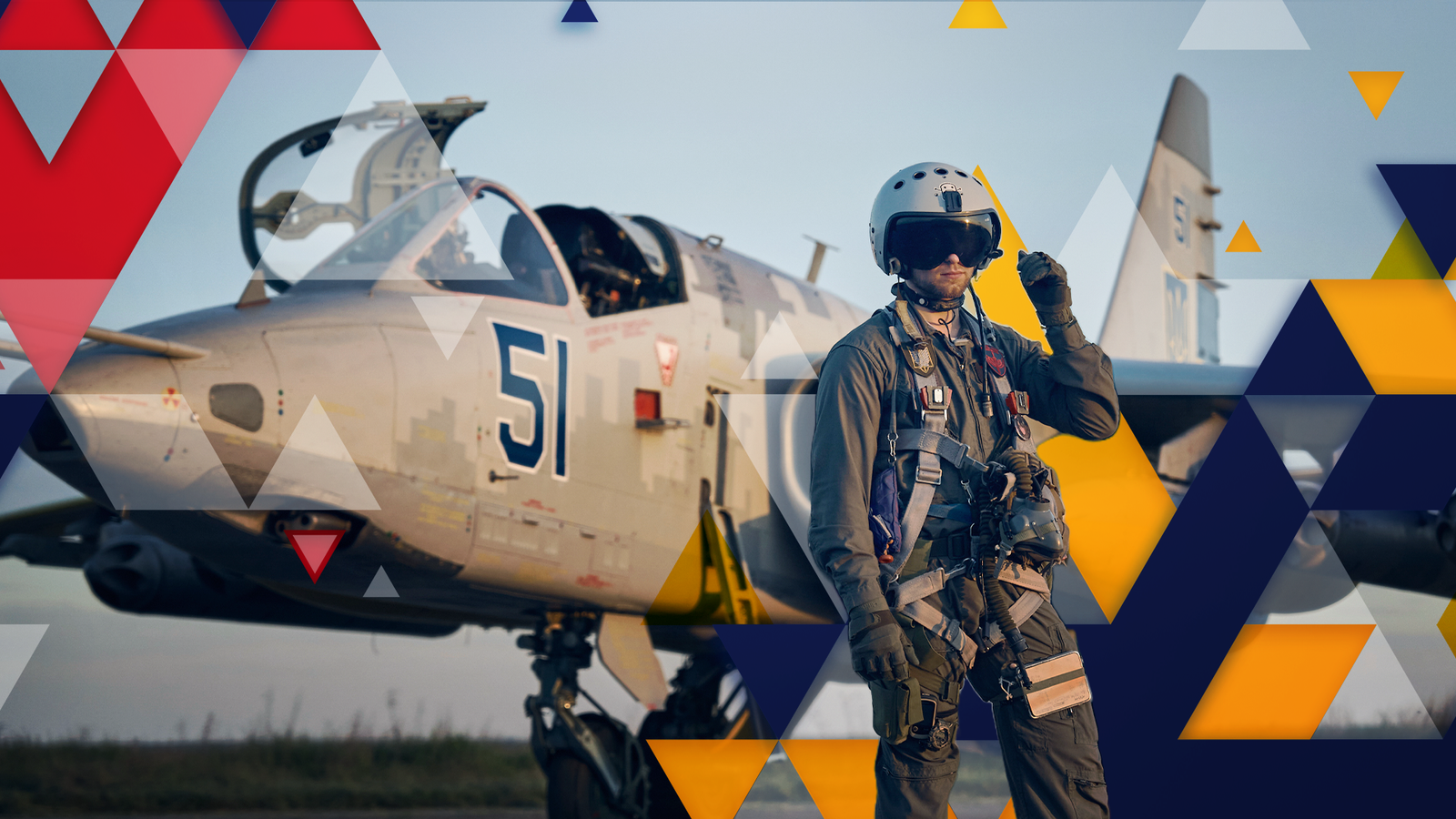Western intervention is the only credible way to protect Ukraine’s counteroffensive from Russian air power

Can Ukraine’s counteroffensive prevail without combat air cover, and will the West come to regret not providing Ukraine with such battle-winning capability?
Although the West has provided a wealth of financial and military support to Ukraine to help combat the illegal invasion of Russian forces, it has been reluctant to provide the modern Western air power that President Zelenskyy clearly needs.
For much of the war in Ukraine, the Russian Air Force has been conspicuous by its absence.
Ukraine war latest: Hypersonic missiles ‘downed’ over Kyiv
Primarily used to launch long-range missiles at targets all over Ukraine, the Russian fighter jets have found the airspace over Ukraine particularly dangerous, and reports suggest they have lost 10% of their assets in the war to date.
The Russian Air Force has been constrained – to some degree – by the provision of modern Western air defence systems; however, since the start of Ukraine’s counteroffensive, the Russian Air Force has increased dramatically its sortie rate and effectiveness.
Please use Chrome browser for a more accessible video player
11:04
Ukrainian village’s ’28 days in hell’
Air superiority is the degree of dominance that permits the conduct of operations by one side and its related land, sea and air forces at a given time and place without prohibitive interference by opposing air forces.
Successful land operations without local air superiority are very difficult; even in Afghanistan, just the sound of jet noise sparked panic in the Taliban fighters.
However, Ukraine does not have the air power capability to dominate the skies and is obliged to conduct its much-anticipated counteroffensive without effective air support.
Advertisement
As an interim measure, the West has provided a comprehensive suite of modern air defence systems – man-portable and mobile – which have taken their toll on the Russian Air Force.
However, the Russians can operate over southeast Ukraine with relative impunity and are supporting their land colleagues with a selection of glide munitions that enable the Russian fighters to remain a safe distance from the Ukrainian air defence systems.
It appears that the Russians have neither the training nor expertise to conduct effective close air support.
Please use Chrome browser for a more accessible video player
5:47
Sean Bell on ‘sobering’ battles in Ukraine
Delivering explosive ordnance close to friendly forces is a challenging task, especially for fighters travelling at 1,000ft a second.
The difference between friendly and enemy is often a fraction of a second’s flying time, and thus the risk of fratricide is high.
If the Russian pilots were better trained, the results for Ukraine could be devastating.
Regardless, this is a very high-risk operation for Ukraine, sending inexperienced new recruits against robust Russian defences, where they will expect to suffer 3x the casualty rate on offence than they have on defence.
Read more:
Vladimir Putin’s speech analysed
Zelenskyy attacks Putin as shells kill three being rescued from floods
Ukraine ‘probing Russian defences’ looking for weak point to send in tanks
So, would the earlier provision of F-16s to Ukraine from the West have made a difference?
In short – no.
Ukraine needs modern air power, not a squadron or so of second-hand F-16 platforms that are neither supportable nor credible, against modern, stealthy Russian fighters.
Air power is a complex amalgam of technology, high-tech software, state-of-the-art precision weapons, and a wealth of supporting capabilities – such as airborne warning and control systems (AWACs), surface-to-air missiles and electronic warfare.
The Russian Air Force could decimate a small number of autonomous ageing F-16s, thus destroying Ukraine’s fledgling air power capability almost overnight and emboldening the Russian military.
The only credible way to provide Ukraine with the air capability required for this year’s offensive would be for the West to intervene and commit Western assets – and crews – to the conflict.
There is no sign of any international appetite for that level of escalation, despite the critical importance of this Ukrainian offensive.
Click to subscribe to the Sky News Daily wherever you get your podcasts
For now, the Ukrainian military has to take on established Russian defences and without the protective umbrella of air support. That is a tough challenge.
Ukraine appears confident that it can prevail – despite the limited resources at its disposal.
Meanwhile, the West will be hoping it does not come to regret the decision not to provide battle-winning combat air capability to Ukraine.
The stakes could not be higher.